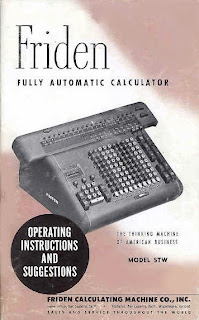Murder Over Dorval
David Montrose [pseud. Charles Ross Graham]
Toronto: Collins White Circle, 1952
Early in this second David Montrose mystery, private detective Russell Teed checks in at LaGuardia Field for a late night flight to Dorval. "Will you be using our limousine service from the airport into Montreal?" asks the airline representative. This same clerk then offers a few nips of Seagram's V.O. in the privacy offered by a back room office.
Teed loses the booze, along with his dinner, lunch and breakfast, during the flight. He isn't alone. All but one of the ten passengers is sick, as poor stewardess Maida Malone moves around a cramped DC-3 with "paper cartons at the ready – lids off, all set to be used."
So much for the romance of air travel.
The sole passenger to be spared the unpleasantness and indignity is Senator Cedric Kelloway. But he's dead of a head wound before the plane lands.
A DC-3 at Dorval Airport, roughly a decade before Senator Kelloway's murder.
Teed, the first to notice the senator's injury, suspects murder. Wanting "Grade A homogenized cops" on the case, he has the pilot radio for Inspector John Dorset, RCMP, a man who has "a mind like a Friden automatic calculator".
This is meant as a great compliment.
But then Teed too has changed. The private investigator introduced in The Crime on Cote des Neiges (1951) is something less in this follow-up. Gone is his preference for Dow – now any beer will do, and the hard stuff has really begun to flow. Teed's corporate clients appear to have been washed away. More of a drunk, he's grown dark and disturbing.
Your business has decayed pretty badly, Son", warns his old McGill pal Danny Moore. "Nobody outside a padded cell would take risks like this without reasons. Have you got reasons? Are you still doing jobs you want to, for some crazy motive? Or have you slid into this? If you have, please let me slap it out of you."
Danny doesn't know the half of it.
Later that same day, Teed will run his Riley over the already broken body of a man who'd tried to kill him:
Ça change.
But then Teed too has changed. The private investigator introduced in The Crime on Cote des Neiges (1951) is something less in this follow-up. Gone is his preference for Dow – now any beer will do, and the hard stuff has really begun to flow. Teed's corporate clients appear to have been washed away. More of a drunk, he's grown dark and disturbing.
Your business has decayed pretty badly, Son", warns his old McGill pal Danny Moore. "Nobody outside a padded cell would take risks like this without reasons. Have you got reasons? Are you still doing jobs you want to, for some crazy motive? Or have you slid into this? If you have, please let me slap it out of you."
Danny doesn't know the half of it.
Later that same day, Teed will run his Riley over the already broken body of a man who'd tried to kill him:
There was a bump as the right front wheel went over the form, and a scraping tearing noise as the oil pan caught in something and then pulled away again. The differential ploughed through something more solid, and then we were clear.
He'll find a girl waiting at his flat and will suggest that she might be more comfortable in his bed:
Full disclosure: I'm Consulting Editor for Véhicule Press' Ricochet Books series, which last year returned Murder Over Dorval to print.
There was no reply, but bare feet whispered on the floor. Then my bedroom door clicked.Just how low can he go?
I counted up to ten, just to give her time to reconsider. But even if she had changed her mind, I don't know what she could have done. There was an eight-storey drop from my window, and no lock on the bedroom door.
Full disclosure: I'm Consulting Editor for Véhicule Press' Ricochet Books series, which last year returned Murder Over Dorval to print.
Object: A fragile, yellowing paperback, the anonymous cover art is all wrong. DC-3s had twin seats on one side of the aisle and singles on the other. The senator had chosen a single seat. A "neat little man" with sparse white hair dressed in the "executive grey suit", his final moments are described at the end of the fourth chapter: "The colour had faded from his smooth pink face, leaving it white with a grey overcast. He was slumped down in his seat, head back and mouth slightly open."
I'll add that the hair on the head of that panicked stewardess Maida should be "smooth and shining like black satin." Such is its sheen that Tweed can't help but notice as he attends to the dying senator.
Access: Véhicule's 2011 reissue features the same cover art and has the advantage of being properly printed and bound. Montreal mystery writer Michael Blair provides a Foreword. Price: an even twelve bucks.
Like all Montrose titles, the original edition enjoyed just one printing. A lone copy is listed for sale online. Price: US$59."Extremely RARE number in the White Circle Paperback series", says the bookseller. Can't disagree with that.
































